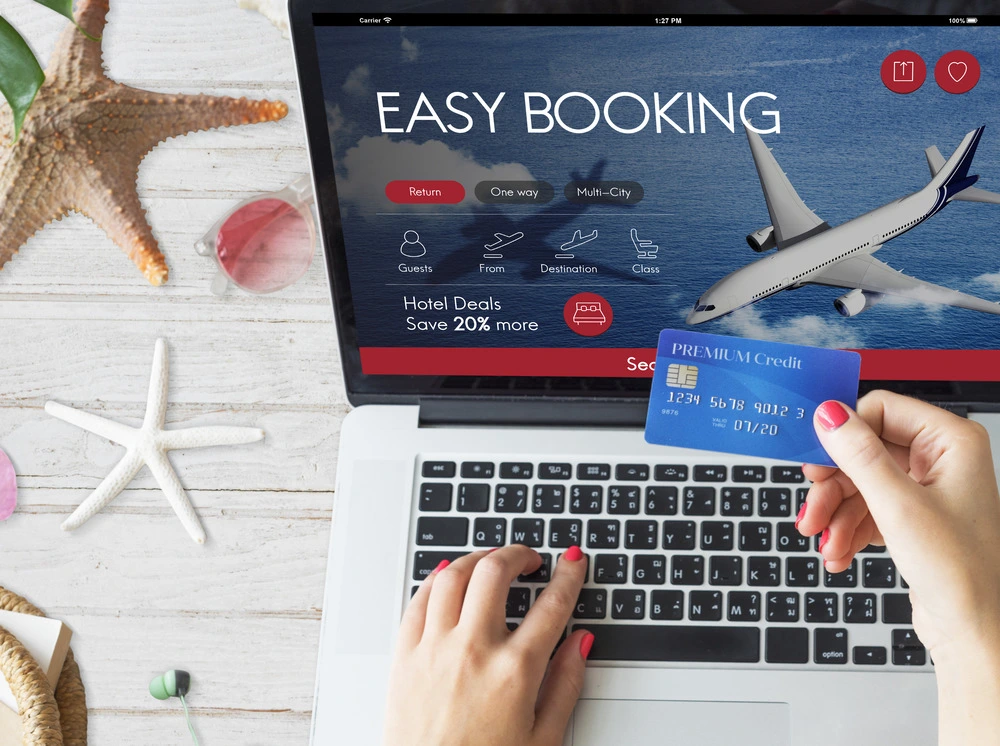Whether it's booking flights, reserving accommodations, exploring destinations, or accessing travel information on the go, mobile apps play a crucial role in enhancing the customer journey and driving business success.
In this blog post, we'll explore best practices and tips for building mobile apps tailored to the unique needs and challenges of travel and hospitality companies, along with examples of the most used frameworks to bring these apps to life.
7 Tips for Creating a Successful Travel and Hospitality Application
1. Understand User Needs:
Before diving into development, it's crucial to conduct thorough research to understand the needs, preferences, and pain points of your target audience. Consider the typical traveler's personas, behaviors, and the specific tasks they want to accomplish through your app. By gaining insights into user needs, you can design and prioritize features that add value and improve the overall user experience.
2. Focus on Usability and Intuitive Design:
User experience (UX) is essential in mobile app development, especially in the travel and hospitality industry where convenience and ease of use are key. Design your app with a clean and intuitive interface, easy navigation, and clear calls to action to ensure users can accomplish tasks quickly and efficiently. Incorporate familiar design patterns and conventions to minimize cognitive load and maximize usability.
3. Leverage Location-Based Services:
Location-based services are a game-changer for travel apps, allowing users to access relevant information based on their current location. Integrate features such as geolocation, mapping, and nearby attractions to provide personalized recommendations, directions, and local insights to travelers. By leveraging location-based services, you can enhance the relevance and utility of your app, helping users discover new experiences and make the most of their journey.
4. Optimize Performance and Speed:
Mobile users have little patience for slow-loading apps and laggy performance, especially when they're on the go. Optimize your app for speed and performance by minimizing app size, optimizing images and media assets, and implementing efficient coding practices.
Utilize caching and preloading techniques to ensure content loads quickly, even in areas with poor connectivity. A fast and responsive app enhances the user experience and keeps travelers engaged throughout their journey. Remember, Quality Assurance testing is crucial here to identify performance bottlenecks and ensure your app operates smoothly under various conditions.

5. Ensure Data Security and Privacy:
Travel apps often handle sensitive information such as personal details, payment credentials, and travel itineraries, making data security and privacy paramount. Implement robust security measures, such as encryption, secure authentication, and data encryption, to protect user data from unauthorized access and cyber threats.
Comply with industry regulations and standards, such as GDPR (General Data Protection Regulation) and PCI DSS (Payment Card Industry Data Security Standard), to safeguard user privacy and build trust with customers.
6. Embrace Cross-Platform Development:
To reach a wider audience and maximize your app's potential, consider adopting cross-platform development frameworks such as Xamarin, React Native, or Flutter. These frameworks allow you to write code once and deploy it across multiple platforms, including iOS and Android, reducing development time and costs while ensuring a consistent user experience across devices. Choose a framework that aligns with your team's skills and project requirements to streamline development and maximize efficiency.
7. Iterate and Gather Feedback:
Mobile app development is an iterative process, and gathering feedback from users is essential for continuous improvement. Launch your app with Minimum Viable Product Development (MVP) and collect feedback from early adopters to identify areas for improvement and new features to prioritize. Monitor app performance metrics, user engagement, and customer feedback to iteratively refine your app and enhance the user experience over time.
Most Used Mobile Frameworks for Travel and Hospitality Apps
Xamarin:
Xamarin allows developers to build cross-platform mobile apps using C# and .NET frameworks, enabling rapid development and native performance across iOS and Android platforms.
React Native:
Developed by Facebook, React Native enables developers to create native mobile apps using JavaScript and React framework, offering a rich ecosystem of libraries and components for building interactive user interfaces.
Flutter:
Developed by Google, Flutter is an open-source UI toolkit for building natively compiled applications for mobile, web, and desktop from a single codebase, offering fast performance and expressive UI design.
There are two common approaches to app development. Explore offshore mobile app development here
Remember, when considering the best practices for building mobile apps, Angular services contribute significantly to performance, maintainability, and overall application quality.
Are you Looking to Create a Mobile Experience for your Business?
Building an efficient mobile app for travel and hospitality companies requires careful planning, user-centric design, and a focus on performance, security, and usability. By following best practices and leveraging the right frameworks, organizations can create compelling mobile experiences for engaging customers, and elevate their brand in a competitive market landscape.
At Jalasoft, our expert mobile app development team of engineers has over 20 years of experience creating top-notch software products tailored to every business demand. From initial concept to deployment and ongoing support, our mobile development services encompass the entire lifecycle of a software project.
We leverage the advantage of nearshoring to provide our clients with high-quality expertise and cost-efficiency. We ensure that every development phase is managed precisely and adapted to meet each client's evolving needs.
If you're ready to embark on an innovation journey, consider Jalasoft as your trusted software engineering partner. Contact us and let us know your requirements!
